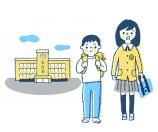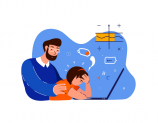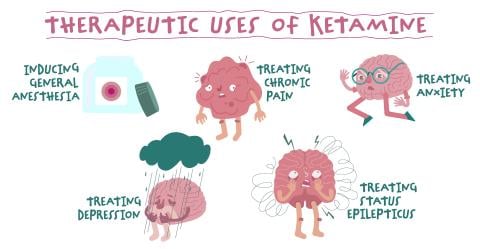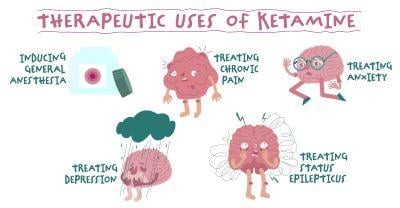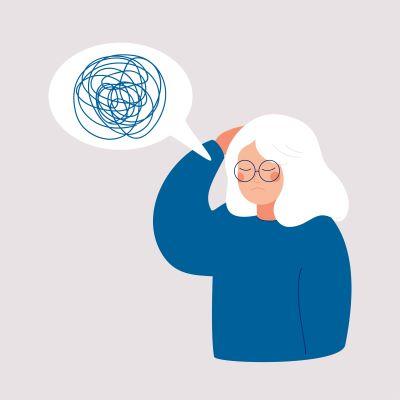Supporting Your Child with Anxiety and/or OCD - Q&A
Supporting Your Child with Anxiety and/or OCD - Q&A
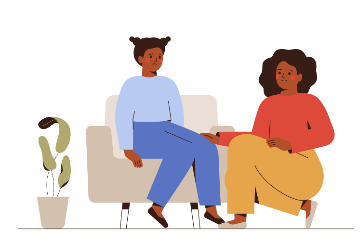
Mona Potter, MD and Kathryn Boger, PhD, ABPP recently partnered with ADAA to host a Q&A Supporting Your Child with Anxiety and/or OCD webinar. The engaging discussion provided parents and caregivers with practical tips and recommendations, and the audience asked so many wonderful questions that Drs. Potter and Boger weren’t able to respond to them all in the time allotted. So they’ve penned this blog to address the most common themes that emerged from the questions.
1. How should parents approach conversations about anxiety and OCD with their child or teen?
We would suggest leading with curiosity. Instead of telling your child or teen that they need help, we recommend sharing your observations with them (e.g, “I’ve noticed that you’ve been avoiding your friends lately”) and asking them for feedback (e.g., “Has that been your experience of it?”).
Before jumping into problem-solving mode (which is very tempting as a parent!), first take the time to really listen to your child’s responses and show compassion (e.g., “It sounds like you’ve been feeling lonely lately. I imagine that’s been really tough).” Let them know that they aren’t alone and that you’re here to support them. You can assure them that there are also skills and interventions that can really help.
More generally, we recommend creating a culture of listening and sharing in your family which can help to build your child’s confidence and trust in approaching you when they are having a hard time. You could start with family meals as an opportunity for your family to come together to talk about a range of topics. You could also set aside other, regular times to catch up with your child, for example, during walks or car rides. Again, the key is to lead with curiosity and openness in these conversations.
2. If a child is struggling with anxiety or OCD, who can the parent talk to?
The first rule of thumb is, if you’re concerned about your child, follow your gut and seek support. As a starting place, we suggest reaching out to your teen’s pediatrician and/or school supports to talk through the problem and possible resources. These professionals can help you identify the problem and develop a plan of action. They can also provide you with a support system and a sounding board, so you don't have to carry your worries alone. You may find that different people can offer assistance for different aspects of the situation, so don't hesitate to recruit support from more than one place (e.g., school, pediatrician, friend).
If your child has an outpatient therapist, we recommend reaching out to that person. The therapist, your child, and you could then make a plan for how and when information will be shared and what your role will be.
3. Can you summarize your advice for parenting a child or teen with anxiety?
Supporting your child who has anxiety requires patience, understanding, and a willingness to keep practicing strategies. Here are some important things you can do for yourself as you support your child:
Pay attention to your own emotions and the behavior you are modeling. Children and teens can be very perceptive, and they learn a lot from watching their parents’ behavior. Try to project confidence and calm, even if you, as a parent, are experiencing your own share of anxiety in various situations. This doesn’t mean you can’t show your feelings to your child. In fact, calmly acknowledging your own emotions and modeling how you are managing them teaches your child that it's okay to experience their feelings and that they can develop tools to cope and adapt. For example, in an anxiety-provoking situation, you could acknowledge that you are feeling nervous or fearful and narrate out loud how you are managing your feelings. For example, you might say “I’m feeling a little nervous about talking to my boss today. I went for a bike ride this morning because I know that helps to calm my body, and I am reminding myself that I prepared for this conversation and I can handle it. Even if my boss gets frustrated, I will be ok.”
Name and externalize the anxiety. Many children and teens who have been struggling with anxiety or OCD begin to assume that the disorder has become part of their identity (i.e., “I’m an anxious person so I can’t speak up in class”). Giving a name to anxiety or OCD is a way of separating the disorder from a child's identity, making it something external and separate from who they are. You could encourage your child to give their anxiety a name or imagine it as a separate character like a "worry monster" or "Bob." This can help children and teens start to develop a language for talking about their anxiety or OCD and it can also give them more agency and confidence in skillfully responding to their symptoms.
Acknowledge and allow your child’s feelings. Instead of jumping into problem-solving mode when your child is in distress, first take a moment to pause and really try to understand how they are feeling. Then reflect their feelings back to them. This could sound like, “I can tell how stressful it feels for you to get to school today. It’s feeling really hard.”
Encourage your child to face hard things. Anxiety builds on itself by causing avoidance of feared experiences. Help your child gradually face things that feel scary in order for them to learn that they can handle them. You can help your child break down their fear into smaller steps.
Stop doing things for your child. Parents of children with anxiety often try to buffer or prevent their child’s anxiety by doing things for them, such as speaking for them in public or doing their homework for them. This makes the child feel better in the short-term but actually grows their anxiety in the long-term. It also teaches them to rely on you as a parent. Practice slowly pulling back on and eventually removing these behaviors, one at a time (no need to rip the bandaid!). Let your child know that you’re doing this deliberately - not to be mean, but instead, because you trust that they can do it. Be prepared for your child to have strong reactions at first until they eventually adjust, and their brain learns that they can handle each thing on their own.
4. How can parents effectively address and reinforce positive behaviors when a child is living with anxiety?
Attention is very reinforcing for children and teens, so one thing you can do is to be strategic with your attention. When it comes to your child’s behaviors, the ones you pay the most attention to will increase. If you put a lot of attention on your child’s anxious/avoidant behaviors, you will see more of these behaviors. Instead, try to give lots of attention and labeled praise when your child demonstrates brave behaviors, even if they seem small (e.g., “I’m so proud of you for taking that brave step today”).
In addition to providing verbal praise and acknowledgment, tangible rewards can provide incentives for behavior change for children and teenagers with anxiety or OCD. Consider creating a rewards system in which your child can earn points or tokens for engaging in brave behaviors. These points can then be exchanged for meaningful rewards, such as extra time for play, a special outing, or a small item they've been wanting. The combination of attention, praise, and tangible rewards can make a significant impact on your child's motivation and confidence as they face things that feel scary and hard.
5. If your mental health professional recommends medication, will a child or teen eventually learn to manage their anxiety without it?
The beauty (and vulnerability) of the child/teen brain is that it is growing and developing, constantly being shaped by experiences and actions; so, how your child responds to their anxiety will shape how the anxiety progresses over time.
Combining medication with Cognitive-Behavioral Therapy (CBT) has been shown in research to be more effective in treating anxiety disorders and OCD than either intervention alone (though particularly when catching symptoms early, or if their anxiety is more mild, it is very reasonable to start with CBT alone). The role of medication can be seen to lower the biological intensity of the symptoms so that your child/teen can make effective use of therapy and practice new ways of responding to their anxiety and/or OCD. As this new learning gets practiced, it becomes stronger, and it is possible that medication will no longer be necessary. After a period of 6-18 months of stability (i.e., improved functioning and remission of symptoms), it is very reasonable to consider a taper off of the medication, in collaboration with the prescribing physician.
6. How can parents and families with loved ones who have anxiety or OCD care for their own mental health or find support resources?
It can be very lonely and overwhelming when your child is struggling with anxiety or OCD. Other people around you - family, teachers, neighbors, may not recognize that your child is dealing with anxiety or know how to support you or your family. Let in a few trusted people and be direct about what feels helpful to you (e.g., giving you some periodic respite, lending a listening ear, etc.) and what does not feel helpful (e.g., making comparisons to their own experiences). The road to recovery is bumpy, and the village you create can help you weather the bumps.
As you weather the bumps in this journey, it can be helpful to take stock of what you have control over and what you don't. A useful exercise is to draw a circle on a piece of paper. In the center of the circle, list all of the things you can control (e.g., your emotional reaction to your child, your parenting behaviors) and outside the circle, list the things you cannot control (e.g., your child’s reaction to a situation, certain events at your child’s school). This simple visual representation helps you recognize where you can exert influence and where you should focus on acceptance and letting go.
Another way to care for yourself in this journey is to practice mindfulness. Give your brain a break from worrying about your child’s future or past by bringing your attention back to the present. Practice being present throughout the day and particularly in the presence of your child. For example, put down your phone, take a slow breath in and out, and use your senses to focus on your surroundings: notice the five things you can see, four things you can hear, three you can touch, two you can smell, and one you can taste. When distracting and discouraging thoughts come into your head (and they will because you are human!), notice them and gently move them aside, bringing your attention back to the sensations. You can practice mindfulness alone and with your child anytime during the day: in the morning, at meal time, or before bed.
Watch the full Supporting Your Child with Anxiety and/or OCD - Q&A webinar.
Webinar in partnership with ADAA Institutional Member & Partner InStride Health.


